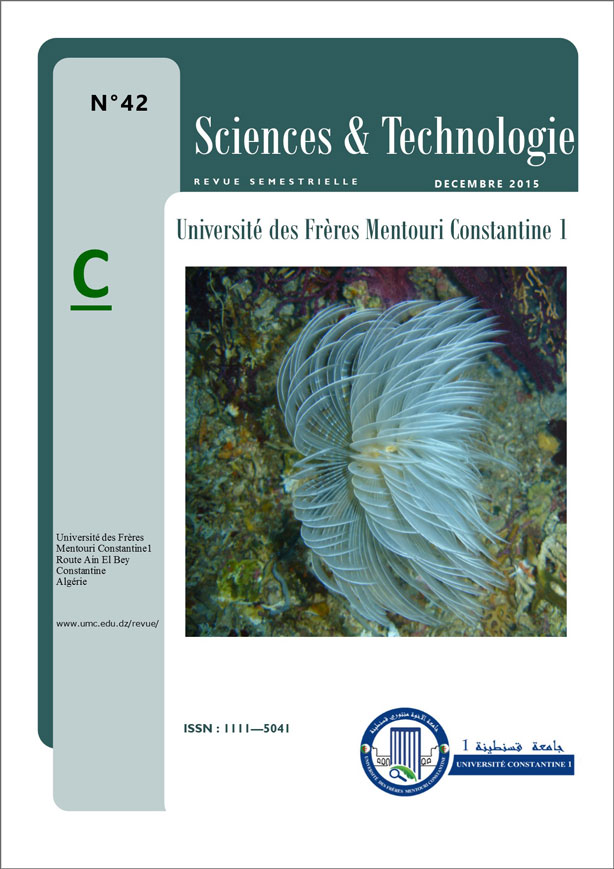IMPORTANCE OF THE BIOINFORMATICS TOOL IN THE CONFIRMATION OF BACTERIAL SPECIES ISOLATED FROM RAW MILK : CASE OF Stenotrophomonas spp.
Mots-clés :
Stenotrophomonasmaltophilia, BlastN, 16S RNA, ARN 16SRésumé
The present study concerned the biomolecular and bioinformatic characterization of psychrotrophic bacteria resistant to cephazolin, in particular Stenotrophomonas spp.The raw milk samples (N = 64) of 30 cows were collected in Biskra, in the South-East of Algeria. All the characteristics tested allowed the presumptive identification of Stenotrophomonas spp. The sequence of the 16S rRNA was used on the BlastN bioinformatics tool of the NCBI portal. The results of the alignment with GenBank 16S RNA sequences confirmed the species: it is Stenotrophomonasmaltophilia.
Références
Aurya K., Le Bouquinb S., Toquina M. T., Huneau-Salaünb A., Le Nôtrea Y., Allain V., et al.(2011). Risk factors for Listeria monocytogenes contamination in French laying hens and broiler flocks. Preventive Veterinary Medicine. 98: 271-278.
Bornert G. (2000). Importance des bactéries psychrotrophes en hygiène des denrées alimentaires, Revue Méd. Vét., 151 (11) : 1003-1010.
Brisabois A., Lafarge V., Brouillaud A., de Buyser M.L., Collette C., Garin-Bastuji B. et al. (1990). Les germes pathogènes dans le lait et les produits laitiers : Situation en France et en Europe. Rev. Sci. Tech. Off. Int. Epiz.16 : 452-471.
Grimont F., Grimont P.A.D. (1986). Ribosomal ribonucleic acid gene restriction patterns as potential taxonomic tools. Ann. Inst. Pasteur Microbiol. 137 (B) : 165-175.
Hantsis-Zacharov E., Halpern M. (2007). CulturablePsychrotrophic Bacterial Communities in Raw Milk and Their Proteolytic and Lipolytic Traits. Appl. and Environ. Microbiol.73:7162-7168.
Oliver S.P., Jayarao B.M., Almeida R.A. (2005). Foodborne pathogens in milk and the dairy farm environment: food safety and public health implications. Foodborne Pathog Dis.2 (2): 115-29.
Rea M.C., Cogan T.M., Tobin S. (1992). Incidence of pathogenic bacteria in raw milk in Ireland. J.Appl. Bacteriol73: 331-336.
Saitou N., Nei M. (1987). The Neighbor-joining Method: a new method for reconstructing phylogenetic trees. Mol. Biol. Evol. 4 (4): 406-425.
Sanaa M., Poutrel B., Menard J.L., Serieys F. (1993). Risk factors associated with contamination of raw milk by Listeriamonocytogenes in dairy farms. J. DairySci. 76 : 2891-2898.

